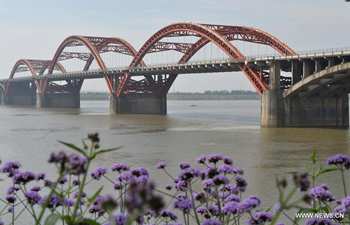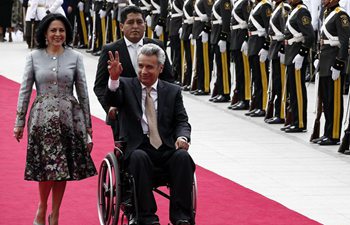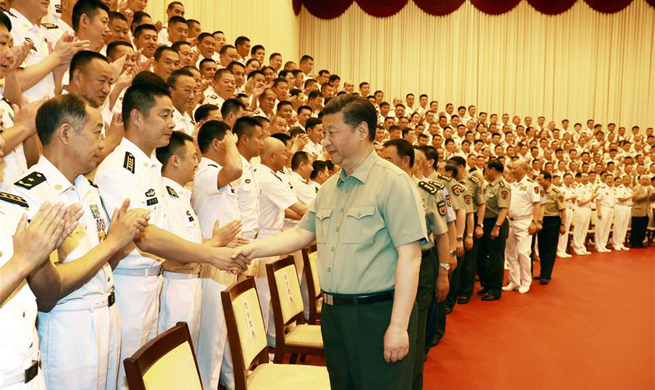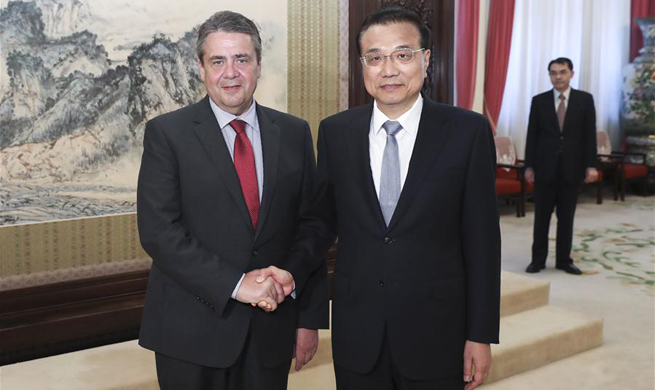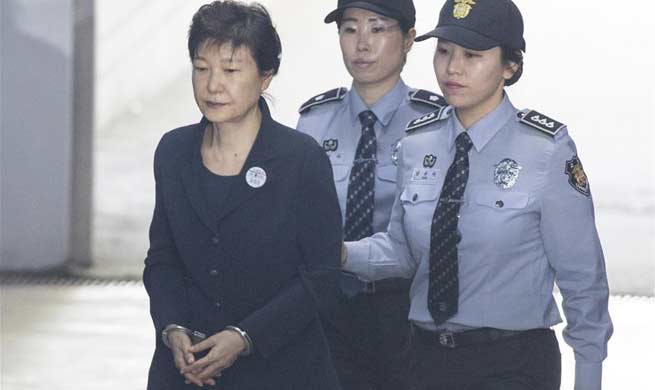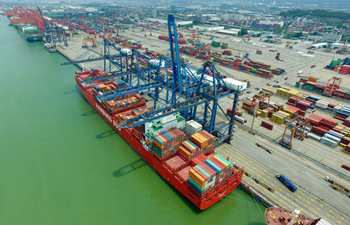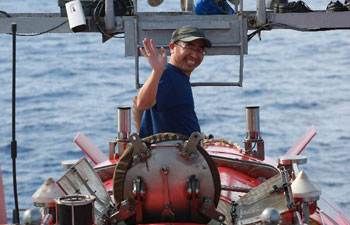NEW DELHI, May 25 (Xinhua) -- The BRICS is a bond between the developing and developed countries which helps enhance connectivity and accelerate global economic growth, an Indian expert said here in a recent interview with Xinhua.
The BRICS is an important manifestation of multiplicity and multilateralism in the age of global interdependence, said B.R. Deepak, a professor at the Center for Chinese and Southeast Asian Studies of Jawaharlal Nehru University.
The expert made the comments nearly 100 days before the ninth annual BRICS summit to be held in Xiamen, China, from Sept. 3 to Sept. 5.
The BRICS summit brings together Brazil, Russia, India, China and South Africa that comprise its moniker, along with participants from across the globe. This year's event is themed "BRICS: Stronger Partnership for a Brighter Future."
The BRICS and its New Development Bank represent the aspirations of the largest developing economies to have their role in the international systems of governance, Deepak said.
The BRICS bank was set up with an initial authorized capital of 100 billion U.S. dollars after leaders of Brazil, Russia, India, China, and South Africa signed the treaty for its establishment during the sixth BRICS Summit in Fortaleza, Brazil, in 2014. It officially opened in Shanghai in 2015.
According to the International Monetary Fund, BRICS and other developing countries contributed 80 percent of global growth in 2016.
The newly established institutions will increasingly become a bridge between the developing and developed countries, becoming instrumental in pushing global economic growth, and more importantly furthering South-South cooperation at various levels, the professor said.
Since these are necessarily important and positive outcomes of the BRICS, it has become important for China and India to strengthen and deepen the scope of such institutions, he added.
"In the long run, we would be able to think of a better regional connectivity, intra-regional connectivity which will pave a way for regional or trans-regional economic integration," he said.
Cultural exchanges are the pillar of bilateral and multilateral relations.
"It is the cultural capital of a country that has attraction and lays foundations of understanding between the people," Deepak said.
Despite various exchanges in the form of cultural festivals, media and film, as well as BRICS scholarship programs, there is huge potential to strengthen and broaden the scope of people-to-people exchanges between the BRICS nations, he said.
"More importantly, there is a need to institutionalize these mechanisms and establish even more mechanisms at various levels," he added.




